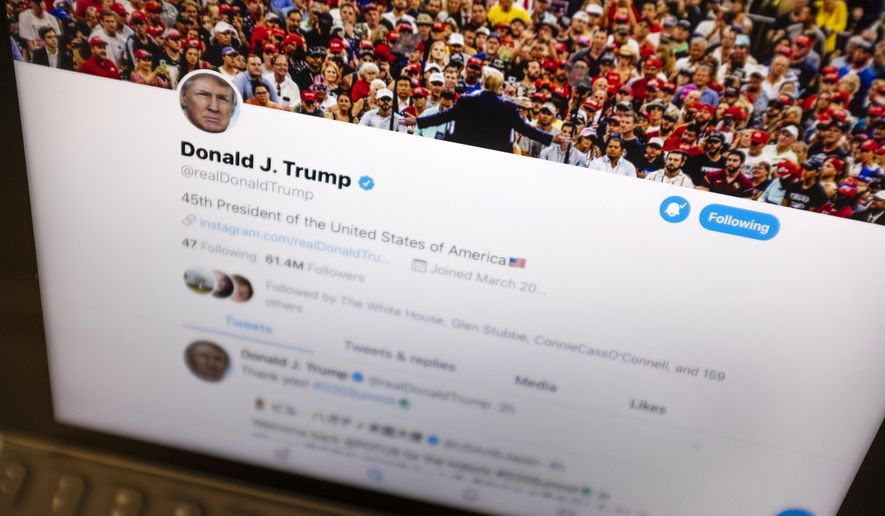President Trump asked the Supreme Court on Thursday to hear a case over his ability to block users on Twitter from his account after lower courts said the move ran afoul of the Constitution.
His appeal to the high court comes after seven individuals who were blocked by the president on Twitter filed a lawsuit in 2017.
The Twitter users are able to view his tweets from other online accounts but cannot interact with them or leave a comment, according to legal documents.
Both the federal district and circuit court ruled the president violated the First Amendment by blocking Twitter users since he uses his personal account, at times, to announce official policies.
Mr. Trump’s Justice Department, though, wants the Supreme Court to step in, arguing the justices must hear the case because the lower courts’ rulings blur the line between official action and personal conduct.
The administration reasoned the president created his Twitter account in 2009 when he was a private citizen and if he were not allowed to block users, that would mean he was being treated differently than other Twitter account holders.
“The blocking capability was available to President Trump because he is a registered Twitter user, not by virtue of his public office, and is available to him on the same terms that Twitter makes that capability available to all account holders,” the administration’s legal filing read.
Jameel Jaffer, executive director of the Knight First Amendment Institute, represented the individuals who brought the lawsuit against the president in the 2nd U.S. Circuit Court of Appeals. Mr. Jaffer said the legal battle is critical to democracy.
“This case stands for a principle that is fundamental to our democracy and basically synonymous with the First Amendment: government officials can’t exclude people from public forums simply because they disagree with their political views,” he said. “The Supreme Court should reject the White House’s petition and leave the appeals court’s careful and well-reasoned decision in place.”
In 2018, the district court ruled Mr. Trump’s Twitter account was a “public forum” and he cannot discriminate against those who disagree with him, reasoning that is viewpoint discrimination in violation of the First Amendment.
Last year, a three-judge panel for the 2nd U.S. Circuit Court of Appeals unanimously upheld the district court’s ruling.
At least four justices must vote to take the case for Mr. Trump’s appeal to be heard by the Supreme Court.
The justices return in October to start their 2020 term.
• Alex Swoyer can be reached at aswoyer@washingtontimes.com.




Please read our comment policy before commenting.